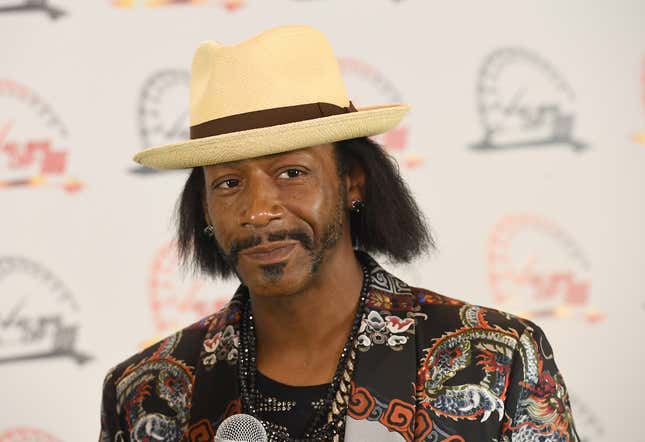In the world of music and entertainment, there are few names as iconic and polarizing as Beyoncé. Widely regarded as a global superstar, her career trajectory has been nothing short of meteoric. However, comedian Cat Williams has recently made some bold claims that challenge the narrative of the pop diva’s rise to fame. According to Williams, Beyoncé’s success might not have come entirely through talent and hard work alone—he suggests that there may be darker forces at play, including career sabotage and even stealing from other artists.
Cat Williams, known for his outspoken and sometimes controversial opinions, has been particularly vocal about the underbelly of the entertainment industry. While he has previously criticized figures like Steve Harvey and Cedric the Entertainer, Williams has now set his sights on Beyoncé, implying that she might not be as innocent as the media often portrays her. In fact, Williams has gone so far as to suggest that Beyoncé, in her quest for dominance in the music industry, may have “sacrificed” other artists to maintain her position at the top.

Williams’ claims are not the first of their kind. Over the years, rumors have circulated about the cutthroat nature of the entertainment industry, with several artists allegedly using underhanded tactics to climb the ladder of success. Beyoncé, in particular, has been at the center of many of these whispers. According to Williams, there is a “blood trail” in Beyoncé’s wake, metaphorically speaking, with many of her competitors mysteriously falling by the wayside. He suggests that Beyoncé may have been involved in eliminating the careers of other artists to clear the path for her own rise to superstardom.
One of the key allegations revolves around the 2003 hit song “Crazy in Love,” which Beyoncé famously released as her debut solo single after Destiny’s Child disbanded. Williams draws a connection between this song and Amel Larrieux’s “Why Does It Feel So Good?” from the early 2000s, suggesting that Beyoncé’s hit might have borrowed heavily from Larrieux’s work. According to Williams, Beyoncé not only took inspiration from Larrieux’s style but may have outright stolen it, further solidifying her place in the industry while pushing other artists like Larrieux into obscurity. This isn’t just speculation, he argues—it’s a pattern that has repeated itself throughout Beyoncé’s career.
Beyoncé’s success in the music industry has undeniably been built on her extraordinary talent, work ethic, and iconic stage presence. However, Williams’ claims cast a shadow over her accomplishments. He posits that the entertainment industry is full of hidden agreements and backroom deals, where bigger players like Beyoncé manipulate the system to ensure their dominance. According to Williams, incidents such as the infamous Super Bowl halftime performance, where Beyoncé was heavily scrutinized, are no accident but rather part of a larger strategy orchestrated behind closed doors to maintain control over the industry.
The case of Ameryie, another artist whose career was seemingly sidelined by Beyoncé’s rise, is frequently cited in discussions about Beyoncé’s alleged sabotage. Ameryie, known for her hit song “One Thing,” found herself struggling to get her second album out despite collaborating with top-tier producers. Meanwhile, Beyoncé, under the guidance of her father and manager Matthew Knowles, quickly secured a hit song, “Crazy in Love,” which bore striking similarities to Ameryie’s style. Fans and critics have pointed out that Beyoncé’s success with the song was no coincidence, with some even suggesting that the timing and similarities between the two tracks were more than just a fluke.
:max_bytes(150000):strip_icc()/beyonce-asking-fans-to-wear-chrome-082323-601e13804c084ad79be61543a67e0407.jpg)
The Baileys, Chloe and Halle, have also been caught in the crossfire of these rumors. Signed to Beyoncé’s Parkwood Entertainment, the sisters were initially seen as protégés who would follow in Beyoncé’s footsteps. However, some fans have pointed out that Chloe, in particular, has not received the same level of promotion or support as Beyoncé’s own solo career. Chloe’s debut album, In Pieces, sold only 10,000 copies, leading many to believe that Beyoncé’s lack of support was intentional to keep her protégée from overshadowing her own brand. This lack of promotion, combined with the pressure of being signed to one of the biggest names in music, has led to a growing suspicion that Beyoncé might be limiting her artists’ success to maintain her own dominance.
While Williams’ comments may sound extreme, they tap into a larger conversation about the power dynamics in the entertainment industry. The idea that a select few, like Beyoncé, are able to control the careers of others is not as far-fetched as it may seem. The industry is filled with gatekeepers who hold the keys to success, and those who challenge the status quo often find themselves sidelined. Whether or not Beyoncé is guilty of these accusations, the fact remains that her career has been surrounded by both adoration and controversy, and it’s clear that the truth about what goes on behind the scenes might be more complex than what the public is led to believe.